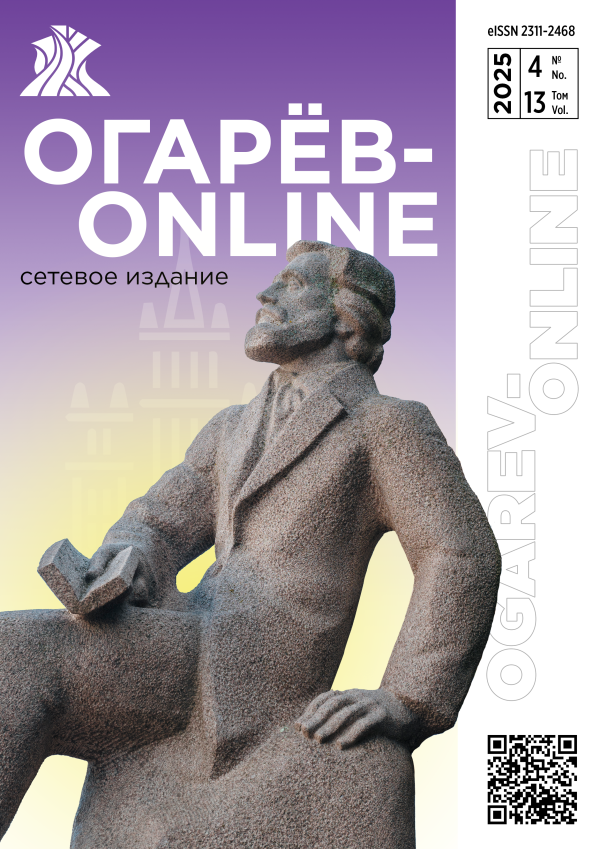Vol 3, No 12 (2015)
- Year: 2015
- Published: 30.04.2015
- Articles: 10
- URL: https://ogarev-online.ru/2311-2468/issue/view/19123
Full Issue
The structure and language characteristics of english technical documentation
Abstract
The article deals with the structure and language peculiarities of technical documentation texts. Particularly, the technical documentation of the company of heat-insulating materials “SKAMOL A/S” is analyzed. The analysis is based on the level approach to language units. Thus, the lexical, grammatical, syntactic and graphic levels are considered.




Stylistic analysis of graphical means in Emily Dickinson’s poetry
Abstract
This article presents a stylistic analysis of graphical means in the poem "Nature is what we see" by Emily Dickinson, one of the brightest representatives of American literature of the XIXth century. The study proves the usage of dash and capitalization to be a peculiar feature of the poem graphical structure and a manifestation of the author’s individual poetic style.


The functioning of negroid race euphemisms within american political discourse
Abstract
The article presents a diachronic analysis of lexical units used by American politicians to talk about black citizens over the XVIII-XXI centuries. The author focuses on the current state of the issue, i.e. nominating representatives of the Negroid race within American political discourse.






Verbal representation of love in English poetry of the XVI-XXTH centuries: a diachronic study
Abstract
The article considers the paradigms of images related to the concept of "love" in the English classical poetry in diachrony. The author studies a number of invariant poetic metaphors and the changes that their language expression has undergone over time.


Translation strategies of texts of the german financial discourse: a study of banking brochures
Abstract
The article deals with the appropriate translation of texts the German financial discourse, considering their pragmatics. The author focuses on the difficulties of translation of German banking brochures, i.e. the appropriate translation of terminological units, culture-specific vocabulary and proper names.


Heterostereotypes in american english idioms with "mexican" component
Abstract
The article considers idioms with ethnonyms as a means of verbal representation of ethnic heterostereotypes. The study is based on a selection of American English idioms with "Mexican" component. The author focuses on the idiom inner form to identify the motivation of the meaning of the language units in question.


Human struggle to experience Kierkegaardian state of genuine humanness in Updikean writings
Abstract
The article considers the reflection of existential struggle of the despairing selves to experience genuine humanness in a fiction text. The author studies the works of J. Updike, a prominent modern American writer, and S. A. Kierkegaard, an outstanding Danish philosopher, whose philosophical theory of human growth and corruption is widely echoed throughout Updikean writings.

















